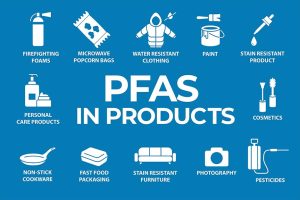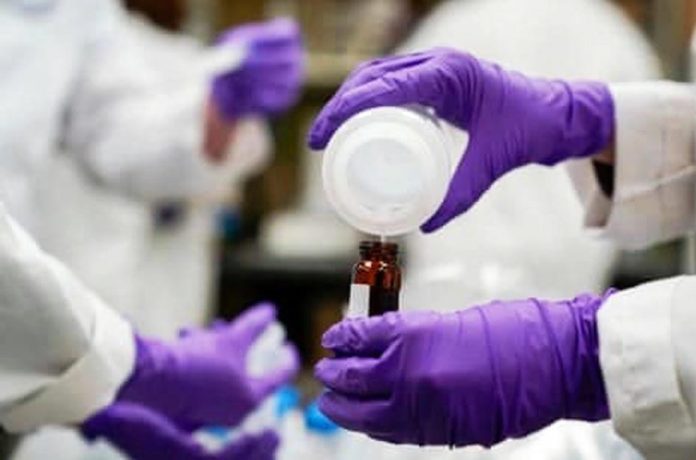A senior lecturer at the Department of Environmental Science at the Kwame Nkrumah University of Science and Technology (KNUST), Prof. Isaac KowTetteh, has called for the creation of a dedicated National Action Plan to tackle PFAS contamination in Ghana, warning that the country currently lacks a focused policy framework to deal with the emerging threat posed by so-called “Forever Chemicals.”
PFAS—Per- and Polyfluoroalkyl Pubstances—are synthetic chemicals widely used in consumer and industrial products because of their water, grease, and stain-resistant properties. Known for their persistence in the environment and the human body, PFAS can take decades to break down, and have been linked to a range of health problems including cancer, liver damage, thyroid dysfunction, infertility, and developmental disorders.

“Ghana does not currently have a specific National PFAS Action Plan. While there are broader environmental efforts that indirectly address PFAS, such as the National Plastic Action Partnership (NPAP) and the Hazardous and Electronic Waste Control and Management Act (Act 1124), these initiatives are not tailored to the scale and complexity of PFAS pollution,” Prof.Tetteh told The Chronicle in response to written questions.
Legal Framework and Monitoring Capacity
Ghana’s Environmental Protection Agency (EPA), under Act 1124, has the legal mandate to prevent, reduce, and eliminate pollution, which provides a basis for PFAS regulation. The Hazardous Chemicals Committee (HCC) within the EPA monitors the importation, use, and disposal of hazardous chemicals, including PFAS.
Prof.Tetteh explained that Ghana already has some technical capacity for PFAS detection through SociétéGénérale de Surveillance (SGS Ghana), which conducts PFAS sampling and testing using international standards such as the EPA Method 1633. This capacity, he argued, should be scaled up and institutionalized to support nationwide surveillance and policy action.
Current Water Treatment Methods Are Ineffective
Despite Ghana’s efforts to improve water safety, conventional water treatment methods such as chlorination, coagulation, sand filtration, ultrafiltration, and UV oxidation have proven ineffective at removing PFAS from drinking water.
“The carbon-fluorine bond in PFAS is among the strongest in organic chemistry. It resists most treatment processes, which is why PFAS can pass through traditional systems and remain in water consumed by the public,” Prof. Tetteh explained.
He noted that more advanced treatment technologies including granular activated carbon filtration, ion exchange resins, reverse osmosis, and nanofiltration have demonstrated much higher efficiency in removing both long-chain and short-chain PFAS, as well as other organic and inorganic impurities.
Low Public Awareness a Major Barrier
Another key concern, according to Prof. Tetteh, is the lack of public education campaigns specifically addressing PFAS exposure in Ghana.
“There is no structured public awareness campaign on PFAS, despite scientific evidence confirming its presence in our environment. This gap in public health communication is dangerous because it limits community-level protective actions and delays policy pressure,” he warned.
He cautioned that many Ghanaians might unknowingly expose themselves to PFAS through consumer products, cosmetics, contaminated water, or e-waste, and urged policymakers to launch nationwide awareness programmes to empower individuals to make informed choices.
Given the complexity of PFAS contamination, Prof.Tetteh recommended a collaborative approach involving government agencies, industry, researchers, and the public. He suggested that industries could support research at institutions like KNUST to identify cost-effective and sustainable solutions for PFAS mitigation, while communities must cooperate in monitoring and adopt behavioral changes to reduce exposure.
The KNUST researcher also drew attention to the scarcity of baseline PFAS data in Ghana and Africa at large. Few studies have measured PFAS concentrations in environmental matrices such as soil, air, and water, or in biological samples including human blood, breast milk, and wildlife tissues.
He pointed out that Ghana lacks advanced analytical tools like high-resolution mass spectrometry, trained personnel, and legal thresholds for PFAS in water and soil. Also missing are studies on how Ghanaians are exposed outside of e-waste sites and what the long-term health effects may be.
Ghana’s Stockholm Convention Commitments
Prof.Tetteh disclosed that the ongoing update of Ghana’s National Implementation Plan (NIP) under the Stockholm Convention on Persistent Organic Pollutants (POPs) now includes PFAS as a target chemical.
“This inclusion is significant. The NIP offers a structured national mechanism to plan, fund, and implement PFAS research, surveillance, and control. It can become the main tool to drive change if supported politically and financially,” he emphasized.
He further noted that Ghana has a strong record of international cooperation on environmental issues and urged that these partnerships be extended to cover PFAS. Existing collaborations with UNEP, UNIDO, WHO, and the US EPA, he said, could provide technical expertise, funding, and training for PFAS detection and remediation.
“No matter how useful these chemicals are, if they harm the population, we must choose safer alternatives. If we value lives, we must act,” Prof.Tetteh said.
Time for Action
The message from Prof.Tetteh is clear: Ghana cannot afford to delay action on PFAS. He called for the urgent development of a National PFAS Action Plan, stronger regulation, public awareness campaigns, investment in advanced water treatment technologies, and expanded research and monitoring programmes.
Without these measures, he warned, the invisible threat of Forever Chemicals will continue to quietly undermine Ghana’s public health, environment, and the wellbeing of future generations.








